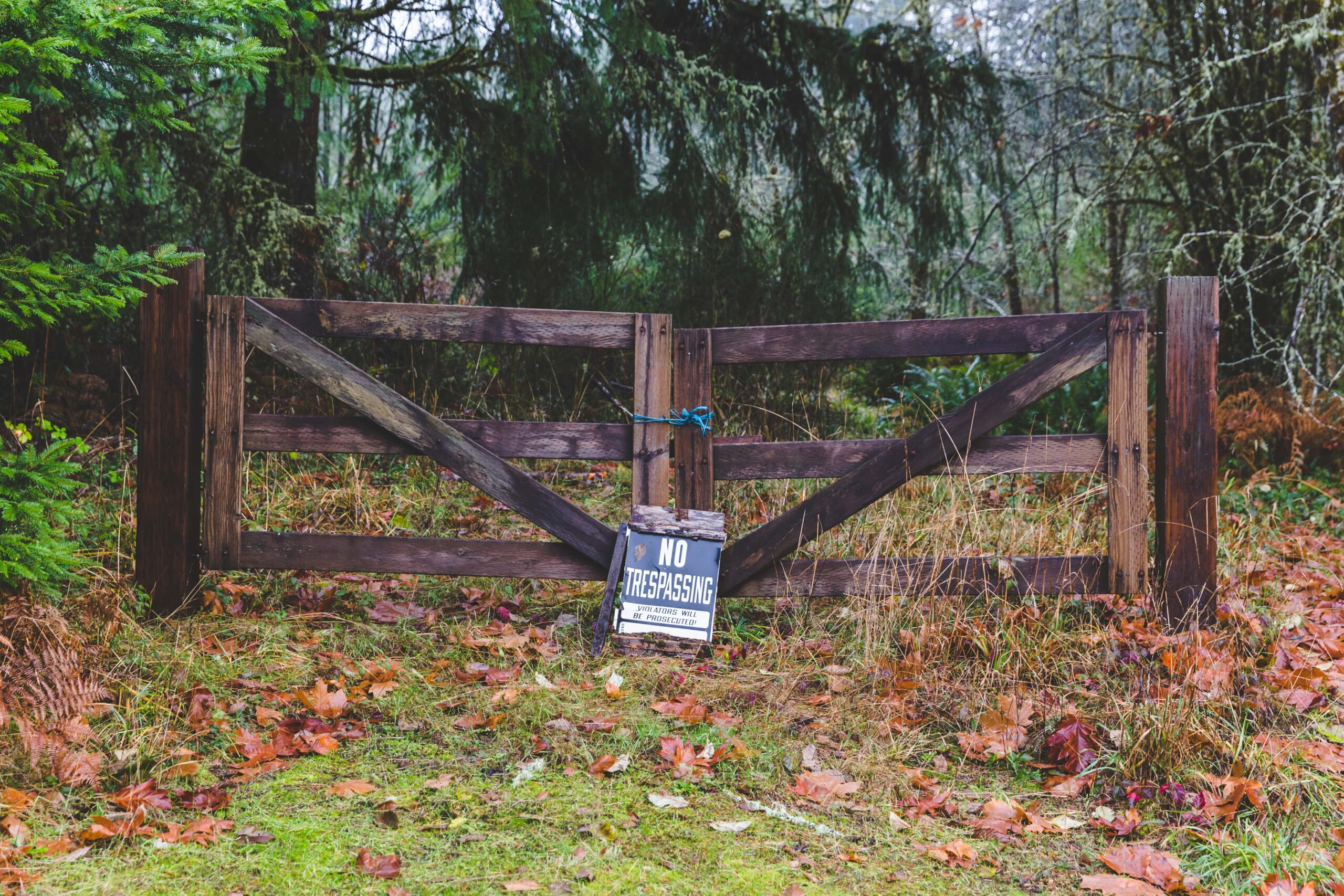Experienced Long Island Criminal Trespassing Lawyer
If you’ve been charged with trespassing in Nassau County or anywhere on Long Island, you’re not alone—but the stakes are high. Trespassing charges can range from minor infractions to serious felonies, depending on the circumstances. Whether you’re facing a civil violation or a criminal offense, understanding the nuances of trespass laws and potential penalties is essential. These charges can lead to jail time, fines, and a lasting criminal record, affecting your reputation, career, and personal freedom. With a premier Long Island criminal defense attorney, you can protect your rights and build a strong defense strategy. If your trespassing charge involves a domestic violence matter, our experienced Nassau County domestic violence lawyer can provide the guidance you need.
Degrees of Criminal Trespass in New York
New York law divides criminal trespass offenses into three degrees, each with escalating penalties based on the type of property involved and the circumstances of the offense. Understanding these degrees and the penalties they carry is essential for anyone charged with trespassing.
Third-Degree Criminal Trespass (N.Y. Penal Law § 140.10)
This is the least severe criminal trespass offense, classified as a Class B misdemeanor. Third-degree trespass occurs when an individual unlawfully enters or remains on specific types of property, including:
- Property enclosed by fencing or barriers designed to exclude intruders.
- Elementary or secondary school buildings.
- Public housing projects.
- Restricted areas, such as railroads or other facilities with access limitations.
Penalties: If convicted, individuals can face up to 90 days in jail. While it is the least severe, a conviction can still have long-term consequences for your personal and professional life.
Second-Degree Criminal Trespass (N.Y. Penal Law § 140.15)
Classified as a Class A misdemeanor, second-degree criminal trespass applies when a person unlawfully enters or remains in a “dwelling.” Under New York law, a “dwelling” refers to any residential structure typically occupied overnight, such as an apartment or house. This offense is more serious than third-degree trespass, given the greater personal privacy involved in someone’s home.
Penalties: Individuals convicted of second-degree criminal trespass may face up to one year in jail.
First-Degree Criminal Trespass (N.Y. Penal Law § 140.17)
This is the most severe form of criminal trespass, classified as a Class D felony. First-degree trespass occurs when an individual unlawfully enters a building while possessing a deadly weapon or firearm. This offense is considered more dangerous because it involves not just trespassing but the potential for harm.
Penalties: A conviction can result in a prison sentence of up to seven years, depending on the specifics of the case and the defendant’s prior criminal record. If you have prior felony convictions or other aggravating factors, the sentence could be even harsher.
Trespass on Public and Semi-Public Properties
New York’s trespassing laws also extend to properties that are publicly or semi-publicly accessible. While these properties may be open to the public, entering them without permission after being told to leave can lead to criminal trespassing charges. Similarly, entering restricted areas of semi-public buildings without proper authorization can result in legal consequences.
Case Example: People v. Albra, 13 Misc 3d 64 (App. Term. 2d. Dept. 2006)
In this case, the defendant was charged with trespassing for remaining at a Town Board meeting after being informed that their privilege to be present had been revoked. The court found the defendant guilty of trespass after determining that they had been properly notified that they were no longer welcome. This case highlights the importance of knowing your rights when it comes to public or semi-public properties, especially if you’ve been explicitly told to leave.
If you find yourself in a similar situation, having an experienced trespassing lawyer can help you understand whether the property owner or representative’s actions were lawful and whether you were given proper notice to leave.
Defenses Against Criminal Trespass Charges on Long Island
When facing trespassing charges in Nassau or Suffolk County, there are several potential defenses that an experienced criminal trespassing lawyer can explore to fight the charges. Depending on the specifics of your case, the following defenses may apply:
- Lack of Intent: The prosecution must prove that you intentionally entered or remained on the property without permission. If you can show that you had no criminal intent while on the property, this could be a valid defense.
- Consent: If you had permission to be on the property, this can serve as a strong defense. This is often relevant when trespassing occurs on private property or in situations involving businesses or residences where consent might have been implied.
- Mistaken Identity: Proving that you were not the person who trespassed is a defense that can work if the police or property owner mistakenly identified you.
- Ownership Disputes: If there is a dispute over whether the person who accused you of trespassing actually had the authority to control access to the property, this can create reasonable doubt in the case against you.
- Unlawful Search and Seizure: If the police violated your Fourth Amendment rights by conducting an unlawful search or seizure in relation to the trespassing charge, this could result in the dismissal of evidence and, in some cases, the dismissal of the charges themselves.
Understanding the Difference Between Trespassing and Burglary Charges
Trespassing and burglary are distinct offenses under New York law, and it’s important to understand the key differences between the two. Trespassing involves unauthorized entry onto someone else’s property, whereas burglary includes the intent to commit a crime inside the premises, even if that crime is not ultimately carried out.
Case Example: People v. Devonish, 6 N.Y.3d 727 (2005)
In this case, burglary charges were reduced to trespass after the court found that the defendant lacked the intent to commit a crime once inside. Even though the defendant was found with tools that could potentially be used for burglary, the presence of a contractor who testified that one of the tools belonged to him helped the defendant’s case. The jury determined that there was insufficient evidence of criminal intent and reduced the charge. This case emphasizes the importance of proving intent when facing burglary charges, and how it can impact the charges.
Choose a Trespassing Lawyer from The R.M.L. Law Firm, PLLC
If you’re facing trespassing charges in Nassau or Suffolk, having an experienced trespassing defense lawyer on your side is essential. Trespassing laws are complex, and the consequences of a conviction can be far-reaching. At The R.M.L. Law Firm, PLLC, we offer top-tier legal representation for clients charged with trespass across Long Island.
- Local Expertise: With extensive experience defending clients in Long Island courts, we have a deep understanding of the local legal systems. Attorney Ramy Mikhail Louis, a former Long Island prosecutor, offers invaluable insight into every case. His experience as a prosecutor allows him to anticipate the prosecution’s strategies and develop a tailored defense plan. With our knowledge of local court procedures, we are well-equipped to provide strategic and effective defense for clients.
- Client-Centered Approach: At our firm, we prioritize your unique circumstances and take the time to fully understand your case. Whether you are negotiating a plea deal or challenging the charges in the courtroom, we tailor our defense strategy for you. Our commitment is to ensure that you feel heard, supported, and confident in the defense of your case.
- Comprehensive Representation: From pre-trial motions to final court appearances, we are with you every step of the way. Our firm provides comprehensive legal representation, guiding you through each stage of the legal process. We are here to protect your rights and deliver the strongest defense possible.
Contact a Trespassing Lawyer Today
If you are facing trespassing charges on Long Island, don’t face this legal challenge alone. Our experienced criminal trespassing lawyers are ready to fight for your rights and future.
Let us help you work toward a favorable outcome in your case. Contact us today.





